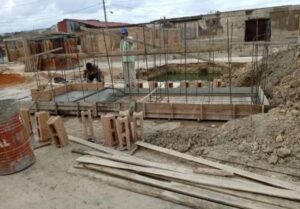Low application in Matanzas of important wage alternative.


The monthly session of the provincial Secretariat of the Cuban Trade Workers’ Union (CTC) in Matanzas, warned about the low implementation of Decree 87 (D-87), referred to the organization of the wage system in the Cuban state enterprise sector.
The report presented reveals that only 23 of the 108 companies in this western territory apply it, with benefits for 25,957 employees, only 22.6 percent of those involved in the production of goods and services.

Rogelio Leyva Castellanos, responsible for the Economic Affairs area, insisted on the union’s demand to the administrative staff for the materialization of the faculty where the technical and organizational conditions exist and where more workers can be included in the current Decree, which repealed Decree 53.
It was reported that, in spite of their financial possibilities, companies such as Construcción Norte and Sur, Construction and Assembly of Works for Tourism, Materiales del Poder Popular, Electricity, and Commercialization of Los Arabos, Jovellanos and Limonar are not implementing the D-87.

Roberto Betarte Mazorra, head of the Labor and Social Affairs Department of the National Committee of the CTC, reflected on the organizational measure that Decree 87 means, «because it allows us to control processes, distribute or increase the workforce, improve or increase salaries».
He admitted failures in its application due to the lack of work organization studies and reiterated that the processes of production of goods or rendering of services are not being examined, a determining aspect for the companies to reverse the implementation of the Decree.
He pointed out as a brake factor that labor regulation is still being denied, «an authentic element of union participation», considered Betarte. «It is the only way to measure the standards or the time it takes to produce or elaborate something,» he insisted.

«Today it is more linked to general economic indicators than to those of participation», he reasoned, while he called to measure whether or not the application of 87 in Matanzas, a key province in the productive structure of the nation, is really effective or not.
It is a matter, he emphasized, of analyzing its impact based on physical production and not only on income. Betarte questioned that at the end of the first semester, the average productivity of labor grew 29 percent more than wages, «evidence that all the incentives to increase production, efficiency and consequently workers’ income are not applied to the maximum of their possibilities».
The purpose of Decree 87 is to ratify the power of the Cuban state enterprise system to establish in a decentralized manner the organization of the workers’ salary system, which contributes to the increase of production and efficiency levels, based on a more efficient management of human resources, as part of the integral process of continuous improvements of the entity.

In the organization of the salary system to be approved, the organizational and management structure, the design and evaluation of the jobs must be considered, and the principles of Equity must be guaranteed: Similar jobs of similar complexity correspond to similar salary, without discrimination of any kind; Differentiation: The salary takes into account the complexity of the work, the conditions of the position, the suitability demonstrated and the individual contribution; Proportionality: The salary is paid according to the amount of work performed and the actual time worked; and Dynamics: The salary is set in correspondence with the results of the company.
The salary fixed for the worker cannot be lower than the minimum wage established in the country, nor lower than the basic salary applied prior to the implementation of the new organization of the salary system, provided that the worker continues to perform the same activity.
The organization of the salary system to be designed maintains the application of the legally established additional payments, in the amounts determined by the head of the entity.
Written by Eva Luna Acosta Armiñán.




